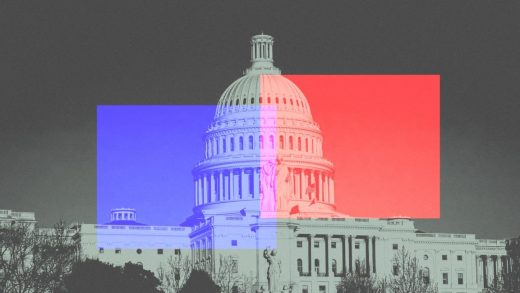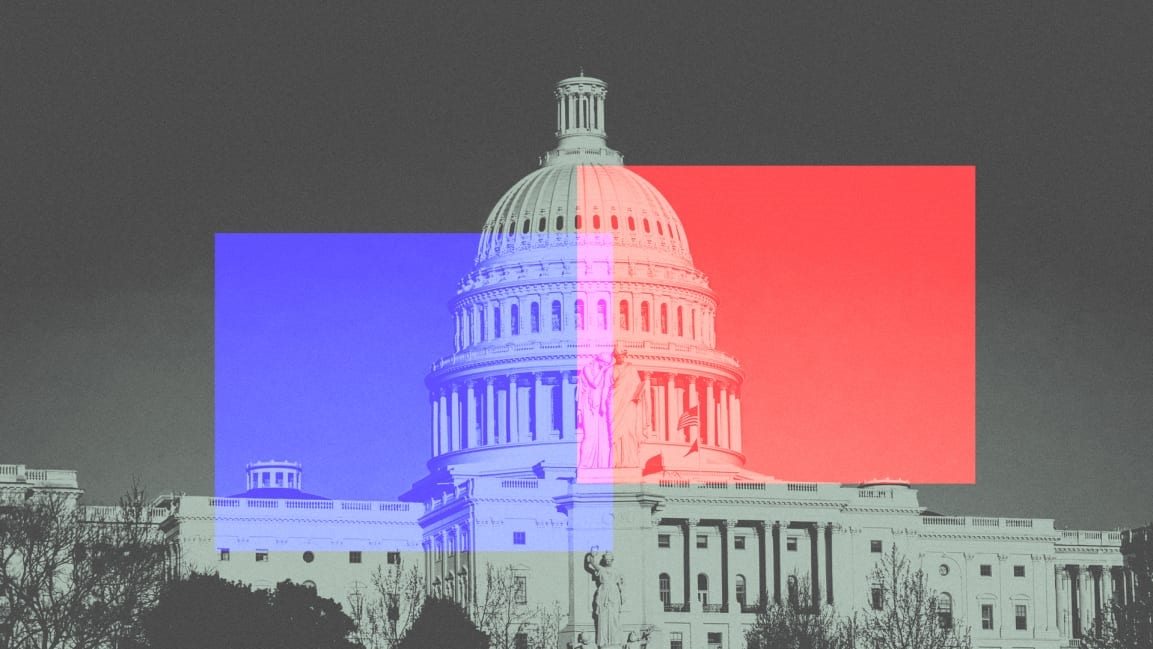U.S. senators are parroting big tech’s anti-antitrust talking points
If you’ve ever wondered about the influence Big Tech wields in the Capital, you could literally hear it coming out of the mouths of lawmakers on Thursday, as members of the Senate Judiciary Committee met to mark up an antitrust bill that would prohibit marketplace and app store owners from self-preferencing their own products.
The bill is Congress’ most serious attempt yet to reign in the power of Big Tech companies–mainly Amazon, Apple, Google, Meta/Facebook, and—potentially—Microsoft and TikTok. If passed, the American Innovation and Choice Online Act would prohibit Amazon from listing its own products at the top of search results ahead of those from third-party sellers. Apple and Google might be prevented from giving preferential placement to their own apps in their app stores.
During Thursday’s session, many senators repeated their belief that there is a lack of competition within the tech industry and that new antitrust laws are needed. But the bill’s sponsors, Senators Amy Klobuchar (D-MN) and Chuck Grassley (R-IA), also heard a number of familiar refrains from committee members on both sides of the aisle seeking to amend, oppose, or delay the bill.
“This bill would actually prevent companies like Apple from taking steps to ensure that an application is safe before you download it to your phone,” said California Democratic Senator Dianne Feinstein. “Since we’re requiring companies to take down protections that are in place today and instead allow hackers and those looking to steal personal data to access the devices.”
“The bill sets the bar far too high for tech companies to ensure their customers’ privacy without being penalized,” said Democratic Senator Patrick Leahy of Vermont.
Those remarks echo the concerns of Apple, which believes that the Klobuchar/Grassley bill, and another bill called the Open App Markets Act, would require it to allow users to “sideload” unvetted apps onto their iPhones from sources other than Apple.
“The bills put consumers in harm’s way because of the real risk of privacy and security breaches,” Apple’s Senior Director of Public Affairs Timothy Powderly wrote in a letter to Senate Judiciary leadership obtained by Fast Company. “In addition . . . the bills would actually allow predators and scammers to sidestep Apple’s privacy and security protections completely.”
Texas Republican Senator Ted Cruz said during the hearing that he’d been on the phone with Apple CEO Tim Cook the night before, and that Cook “expressed significant concerns about the bill.”
A number of senators echoed a talking point about the bill’s effect on the global competitiveness of U.S. tech companies.
“I do have concerns about the impact of this bill on American businesses’ ability to compete in a global economy,” said Texas Republican John Cornyn. Democratic Senator Chris Coons of Delaware hit this same point.
Many of the Senators who voted for the bill also raised concerns about it on Thursday.
NetChoice, an industry group that lobbies on behalf of Amazon, Meta/Facebook, TikTok, and others, has been saying this for months. “Today’s antitrust regime promotes America’s global competitiveness and consumer well-being,” the group states on its website. “Today’s antitrust regime is not perfect, but it reflects a century-plus of accumulated wisdom to promote America’s global competitiveness and consumer well-being.”
Klobuchar has complained before that industry lobbyists are muddying the water on the real language and intent of the bill. It’s not surprising. If passed, it could force Big Tech companies to make major changes to their marketplaces.
“The amount of money and time being put into this . . . in all the issues I’ve worked on I’ve never really seen anything like it,” says Alex Petros, who is policy counsel for tech public interest group Public Knowledge.
Petros says his group was one of many trying to meet with the staffs of senators. “They were inundated–hour after hour, meeting after meeting—with either tech companies themselves or groups aligned with them. It’s been an all-out blitz.”
The Big Tech companies have their own public policy staffs in Washington. In many cases, the companies also use outside D.C. law firms to lobby on their behalf, each with long-standing relationships on the Hill.
The end game of the tech industry lobby may be to raise enough doubts and procedural issues to slow the bill down. As the November midterms approach, it will become more and more difficult to pass significant legislation.
Petros tells me that it’s common in bill markups to hear lawmakers agree to support the bill if they can get one or two amendments into the text. Today, the committee received 107 requests for amendments, including 82 from one senator, Republican Thom Tillis of North Carolina.
In the end, many of the amendment requests were dropped, and the committee members voted 16-6 to move the bill out of committee and on to the floor of the Senate. Both Republicans and Democrats voted in favor.
A House version of the bill (sponsored by Democrat David Cicilline of Rhode Island) made it out of the judiciary committee but stalled on the House Floor. There’s no guarantee the Klobuchar/Grassley bill won’t see the same fate in the Senate.
Many of the Senators who voted for the bill also raised concerns about it on Thursday, but did not enter amendments to address the concerns. Those people could still decide to vote “no” if the measure comes to a full vote in the Senate, explaining that said concerns were never addressed.
According to a report by Reuters’ Diane Bartz, the Cowen Washington Research Group believes that enough of the bill’s supporters expressed reservations that the legislation now less than a 50% chance of becoming law.
However, the bill has some things going for it, too, Petros points out. Unlike the voting rights and infrastructure bills that were sharply divided along party lines, the tech antitrust bill has demonstrated bipartisan support.
Klobuchar and Grassley are likely to promote the bill to Senate Majority Leader Chuck Schumer (D-NY) by stressing that it represents a golden opportunity for the Biden administration to get something done before the midterms.
(13)



